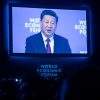
The population of Africa has passed the 1.2 billion mark and will double between now and 2050, overtaking China and India combined. Regional GDP already exceeds US$ 3 trillion and the growth in consumption is expected to offer significant prospects and opportunities for local and foreign companies alike over the next 10 years. This, plus the need to stanch a tidal wave of emigration that will only be halted if Africa’s economy grows significantly and in an inclusive manner, puts Africa once again in the spotlight. The G20 –both under the Chinese presidency and even more so under the current German presidency– has started to focus its attention on the continent, to negotiate a wide-ranging pact with Africa, for the reasons and goals mentioned above, owing too to security problems, amid growing Jihadism that also emanates from the south. The need for development in Africa is something that has been talked about for decades. Has the time come again?
New plans for Africa are being put into effect, although the key question addresses more the ‘how’, and implementation, than the ‘what’. Morocco has returned to the African Union fold. The Africans themselves have drawn up their ‘Agenda 2063’, a year that may seem distant but the document does contain significant interim goals, starting in 2020. The UN’s Sustainable Development Goals for 2030 place Africa at the heart of its concerns. The EU has also shown its commitment to the issue with an External Investment Plan, and among other initiatives is trying to replicate at a European level the Spanish cooperation agreements with various central African countries to stem illegal immigration. The German government has floated a European ‘Marshall Plan with Africa’ –‘Africa and Europe: a new Partnership for Development, Peace and a better future’– with a top priority of employment and opportunities for young people –20 million new jobs are needed every year for forthcoming generations– followed by investment in entrepreneurship. China continues to build its presence on the continent in search of influence, raw materials and business, free of political strings. The Spanish Minister of Foreign Affairs and Cooperation, Alfonso Dastis, wants to revive the moribund Africa Plan, this time in the guise of a Strategy for Africa, and intends to re-establish a stand-alone Directorate General for Africa, rather than the arrangement of recent years covering the Maghreb, the Mediterranean and the Near East.
There is open rivalry for Africa between the Europeans, China, the US, South Korea, Japan, Turkey and India, among the main external players. But by contrast with previous decades, this time the Africans know the destination they want to reach. They do not want to be ordered around, but they are asking for help; this was evident at the recent conference on the region held in Johannesburg by the T20, the network of think tanks from G20 countries that counts the Elcano Royal Institute among its members. This time, amid a context of austerity and cutbacks, there was a continued talk of state aid and investment, but even more emphasis was placed on private investment, especially in infrastructure.
Internally and externally it is acknowledged that ‘Africa needs African solutions’. ‘Africa has to take intellectual leadership of the global discourse on Africa’, says the Ghanaian former Director of the United Nations office for the region, Patrick Hayford. Africa will have its work cut out: integrating (which includes overcoming the divisions between English, French and Portuguese-speaking areas), creating regulatory frameworks and efficient taxation systems, boosting continental trade (at present absurdly limited), convincing Africans themselves to invest in their own countries rather than taking their money to Europe and elsewhere, fostering democracy and the fight against corruption, along with the essential role of women.
According to the Afrobarometer, which covers 35 countries, Africans’ major concerns are, not surprisingly, unemployment, health and education, with democracy and corruption trailing far behind. All this is addressed by Agenda 2063. The significance of unemployment is not the same as in Europe. The same goes for absolute poverty, which, alongside inequality, is another source of insecurity. ‘Africa is rich, the Africans are poor’, argues Stanley Subramoney, Chairman of the NEPAD Business Foundation, adding that ‘we export wealth and import poverty’. A case in point is the way the Jihadist group Boko Haram recruits its militants by paying them US$5 a day –enabling them to eat– and indoctrinates them afterwards.
And while digitisation brings major opportunities –the Internet is lagging behind, but almost universal mobile telephone connections are revolutionising the continent– automation and robotisation may come too soon for the industrialisation Africa needs. An UNCTAD (United Nations Conference on Trade and Development) report predicts that this could cause developing countries to lose two thirds of their current jobs, a shortfall that new technology posts will fail to make up for.
Africa is back in the world spotlight. But if hopes are once again dashed, the crisis this time could be unprecedented.


